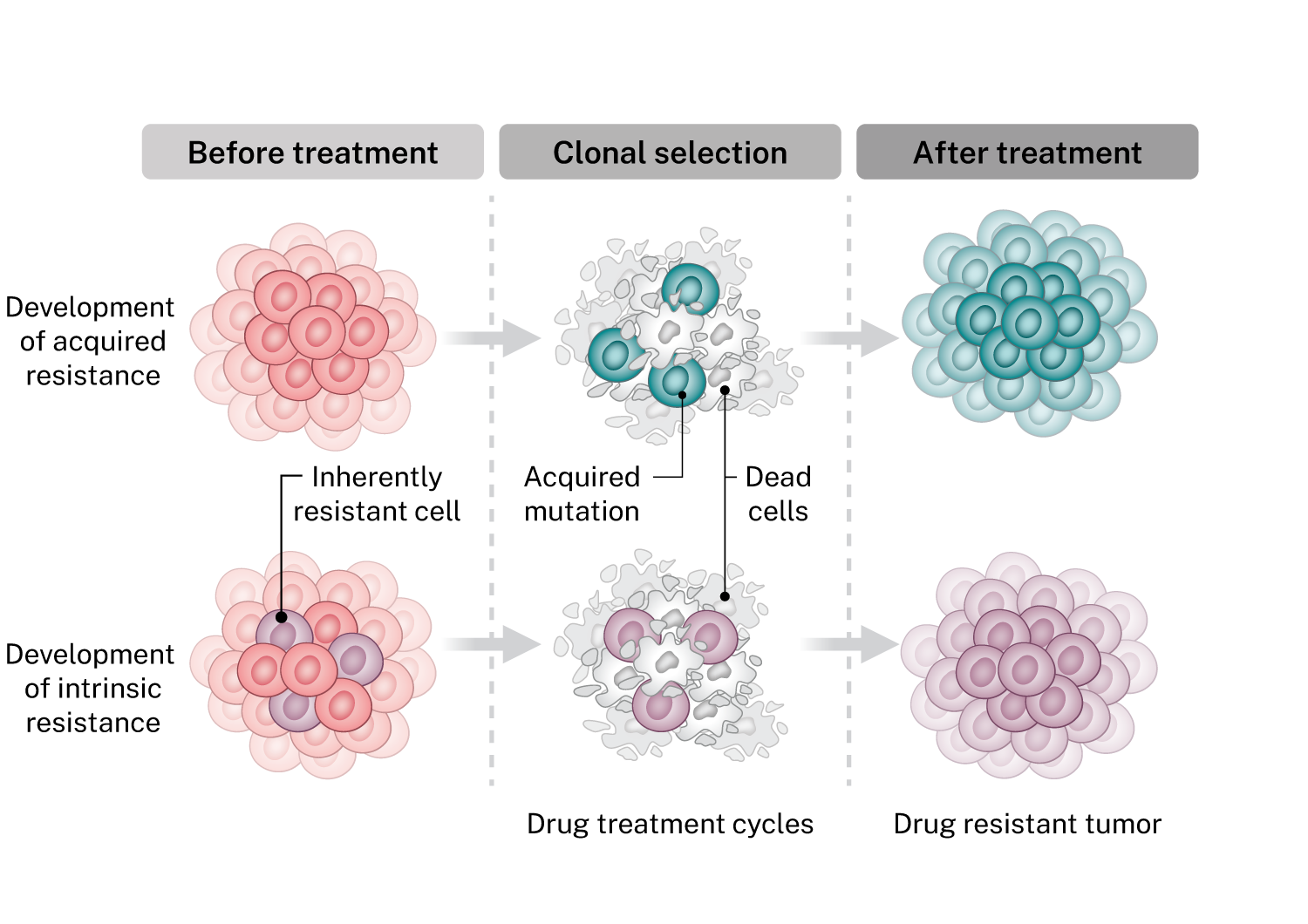Cancer drug resistance continues to be the major limiting factor to achieving cure for cancer patients. Our understanding of the underlying molecular and cellular mechanisms associated with resistance continues to develop with the help of an ever-increasing number of new discoveries in the area.
A framework for understanding drug resistance is that resistance may be an intrinsic property of some cells or clones in a tumor. Over time upon treatment with a cancer drug, these cells are enriched in the tumor, such that the entire tumor becomes resistant to the treatment (this is called intrinsic resistance).
Another concept of resistance is known as acquired resistance. Here, tumor cells progress through a number of genetic events. Accumulation of defects and genetic changes will eventually make the tumor cells resistant to treatment. Over time and upon treatment, only resistant tumor cells will remain, and the entire tumor will become resistant to treatment.
The development of cancer drug resistance is a complex and multifaceted biological process, thus, to effectively treat it, we will need to rethink our approaches and develop uniquely tailored treatments to eventually become successful.
